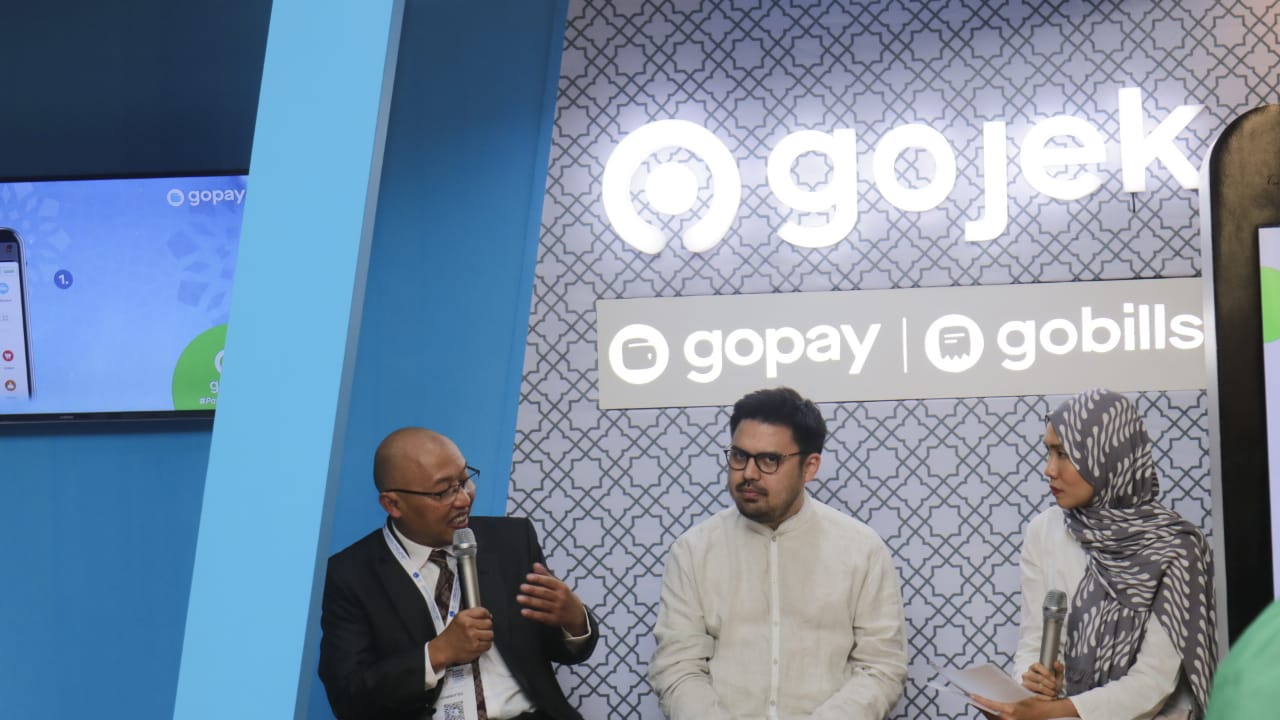The rise of zakat-tech: New apps boost contributions in Indonesia even as regulations lag behind fintech development
BANDUNG – Two new apps were launched this week that will boost Indonesia’s digital payments for the obligatory zakat, even as the national zakat board says there is no specific regulation governing fintech for the sector.
Local unicorn GoJek’s e-wallet launched GoZakat and charity Dompet Dhuafa released its Membangun Ummat Menguatkan Ukhuwah (MUMU) app, both targeting the Islamic social finance contributor.
More Indonesians are turning to fintech via digital platforms and apps to pay their zakat. National Zakat Board (BAZNAS) data reveals the proportion of zakat payments through digital channels increased from 1% in 2017 to 4% of the 8 trillion rupiah ($570.79 million) collected in 2018.
"I'm pretty sure zakat collection this year will reach 9.5 trillion rupiah ($677.79 million), and 15-20% of it is through digital channels,” BAZNAS President Director Arifin Purwakananta told Salaam Gateway.
E-commerce platforms Tokopedia and Bukalapak, and crowdfunder Kitabisa lead all digital channels through October, he said.
Arifin estimates digital payments to account for 30% of zakat contributions in 2021.
BAZNAS currently uses four types of platforms for digital payments, apart from its own channels such as its website and app.
It partners with commercial players such as Tokopedia, Bukalapak, Lazada, Kitabisa and Shoppee, social platforms such as Facebook, Twitter and OY!, Artificial Intelligence channels such as Line Bot and Lenna, and e-money like GoPay, LinkAja and Invisee.
GoPay, GoJek’s e-wallet, developed GoZakat after seeing its GoPoint and GoTix solutions for donation payments process 63 billion rupiah ($4.49 million) since it started its partnership with BAZNAS in June 2018 through October this year, according to its managing director Budi Gandasoebrata.
“We collaborate not only with BAZNAS but also with other institutions like Baitul Maal Hidayatullah, LazisMu, LazisNU, Rumah Yatim, and Rumah Zakat for users to distribute their zakat," said Budi.
Charity organisation Dompet Dhuafa expects its new MUMU app to triple its donations collections from around 300 billion rupiah ($21.4 million) for the first ten months of 2019.
"If we look at data from the Indonesian Internet Service Providers Association (APJI), it is estimated that around 16.3% out of 130 million mobile internet users are seeking social assistance channels,” Dompet Dhuafa IT Director Iskandar Syamsi told Salaam Gateway.
“So we developed this app to make it easier for people to donate, and become the bridge between muzakki (zakat contributors) and mustahiq (zakat beneficiaries),” he added.
The charity body also collaborates with payment solutions company Finet to provide facilities such as the ability to pay utilities bills.
Dompet Dhuafa has launched its app to accept contributions for donations but it is still waiting for a licence from the Financial Services Authority (OJK) and Bank Indonesia, the central bank, for its second version that will include a payment feature, said Iskandar.
CURRENTLY NO REGULATION
However, while fintech is helping boost zakat and Islamic social finance contributions, the sector is still under-served by a lack of regulations, said BAZNAS President Director Arifin Purwakananta.
The challenges include Shariah law (fiqh and fatwa) that is unable to keep up with digital innovations for zakat management, and the OJK not being able to accommodate regulation to lower costs for zakat management platforms run by non-profit institutions, according to Arifin.
BAZNAS and other organisations in the zakat, infaq, sadaqah and waqf sector that use fintech require fatawa to ensure their businesses are run in compliance with Islamic principles but they question if the national fatwa body DSN-MUI can keep up with the rapid developments in tech that enable the growth of Islamic social finance.
Islamic social finance organisations also need regulations from the OJK to ensure lower operational costs, for example by extending value added tax exemptions for their management platforms and other philanthropic activities, said Arifin.
The implementation of digital fundraising for Islamic social finance bodies is so far only outlined in BAZNAS Standard Operation Procedures (SOP).
“There is no specific regulation in the Zakat Law, nor fatwa from DSN-MUI nor other regulations from OJK,” Arifin said, referring to the absence within Zakat Law number 23/2011of regulation governing fintech for zakat management.
"Do zakat collection activities need specific regulations? I will say yes, definitely.”
One digital solution chose a different approach in response to this lack of regulations.
Jadiberkah, owned by Bank Syariah Mandiri, doesn’t process Islamic social finance payments within its app but instead only captures and stores the information and data inputted by contributors, and functions as a market aggregator to show users where they can channel their contributions, Saptono Budi Satryo, the bank’s Head of Sharia Compliance told Salaam Gateway.
"This platform is about facilitating or guiding the user that has no idea how to distribute their zakat, infaq, sadaqah or waqf via the digital process,” said Saptono.
“We still use ATMs, mobile banking and internet banking as payment gateways that are relatively safe, since Bank Syariah Mandiri is already registered for them,” he added.
Jadiberkah launched in May and in six months has collected more than 659 million rupiah ($46,369) in zakat, infaq, sadaqah and waqf from 689 donors, according to Saptono.
It partners with eight institutions, including Rumah Zakat Indonesia, Yayasan Inisiatif Wakaf, and Dompet Dhuafa, on 18 projects that involve the development of Islamic boarding schools, Quran memorisation learning centres, hospitals, mosques, memorial parks, and bridges.
(Reporting by Yosi Winosa; Editing by Emmy Abdul Alim emmy.abdulalim@salaamgateway.com)
© SalaamGateway.com 2019 All Rights Reserved
